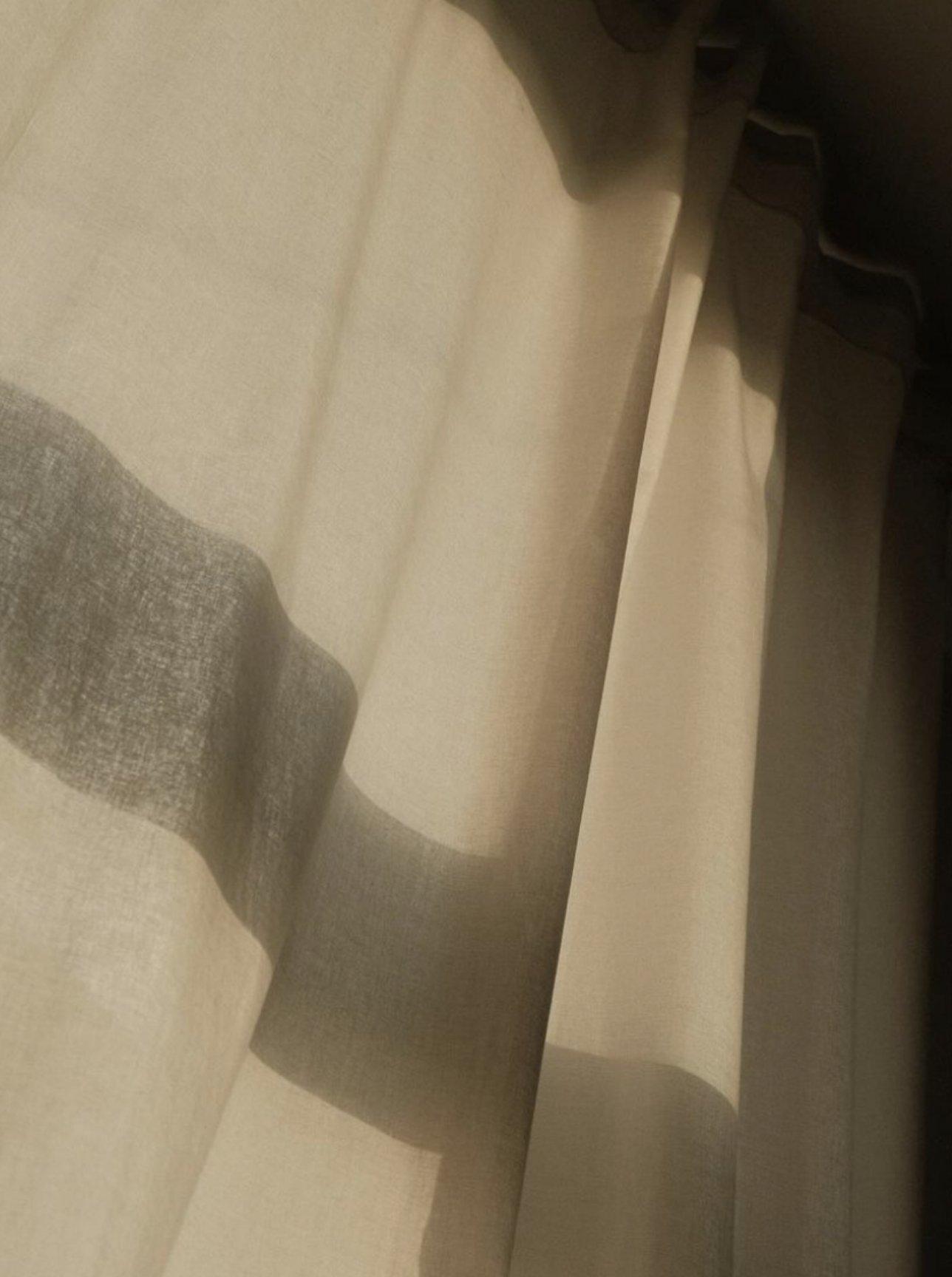THE AGE OF ORTHOSOMNIA
Why we're all obsessed with sleeping better

Words
ED CUMMING
Photography
JACK FAIREY
Lying awake one night recently, I found myself wondering how long humans had worried about sleeplessness. We have always slept, obviously, but wasn’t life more physically tiring in the past? The condition I was experiencing – of being full, safe, warm, comfortable and perilously awake – was surely a more recent phenomenon. Luckily the answer was waiting there on my bedside table, just an online rabbit hole away.
I was wrong. Sleeplessness has been preoccupying people for thousands of years. Early civilisations tried all kinds of things to guarantee a good snooze: chanting, divination, medicinal plants, even ritual blood-letting. The Greek writer Hippocrates identified sleep as one of the six conditions of good health. He believed that the quality of a person’s dreams spoke directly to their physical health. The Romans had a personification of sleep, Somnos (Hypnos in Greek), who lived in Hell and was the brother of death. Sleep was sacred; dreams were visions of the divine; the wealthy sought out sleeping arrangements that would provoke dreams. Bad sleep, on the other hand, was something to be deeply feared.
How little has changed. Hippocrates might be bewildered by phones and apps and memory foam and pillow spray and sleep-tracking watches and Lumie lamps and blue-light blockers and Sleepytime tea and mattresses you order off the internet. But he would have recognised the underlying anxiety. Orthosomnia, the obsession with getting perfect sleep, has become a global preoccupation, reaching levels where people will compete over the quality of their sleep.
A good night's sleep has always been something to strive for. But increased focus on wellness, together with improved scientific understanding of just how important sleep is for so many aspects of our health, means it has never been studied more intensely. Universities have whole departments devoted to it. Publishers put out thousands of articles and books dedicated to helping to encourage healthy sleep. None was more prominent than Matthew Walker’s 2017 book, Why We Sleep: The New Science of Sleep and Dreams, which was a global bestseller, arguing that sleep was helpful for a vast range of physical and mental conditions.
Among the millions he persuaded of sleep’s merits was Bill Gates, who put the book on a reading list in 2019. For most of his career Gates, the architect of so much of the www, was an ardent zzz-dodger, pulling all-nighters in the service of Microsoft. “I was obsessed with my work, and I felt that sleeping a lot was lazy.” He has changed his mind. Jeff Bezos, too, is another who makes a point of getting eight hours.
They are salient cases, billionaires who epitomise the busy-but-sedentary, tech-driven lifestyle that has coincided with the rise of orthosomnia. They are in a position to live whatever kind of life they choose, and they choose to get a full eight hours in. Subsistence farmers or toiling factory workers did not have to worry about sleeping well; exhaustion was the order of the day. Seen in a longer perspective, however, you can see that practically every modern invention has been antithetical to sleep. Electric lights, radios, cars, TVs, motorised transport, supermarkets; seen in another light, almost everything that makes life comfortable and convenient is opposed to a decent rest.
There are as many solutions to insomnia as there are causes. I have tried being drunk, being sober, being full, being hungry, reading a book, not reading a book, listening to a podcast, creating absolute silence, counting sheep and imagining myself asleep, as the Buddhists advocate. I have only found one failsafe solution: being tired in my body and tired in my mind. That, and leaving my bloody phone downstairs. A back to basics approach, perhaps, but what is a more basic need – or pleasure – than eight hours of peaceful slumber? When it comes to our vital functions, sometimes the old ways are the best...
Ed Cumming is a London-based writer and editor, currently at The Telegraph.








